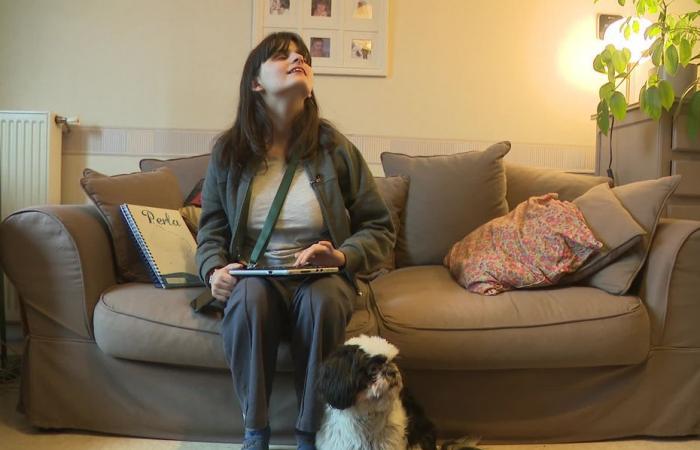
Braille Day is celebrated on January 4. This method of writing was invented two hundred years ago. It remains essential for blind and visually impaired people. This universal writing in relief has been able to adapt to new technologies.
Company
From daily life to major issues, discover the subjects that make up local society, such as justice, education, health and family.
France Télévisions uses your email address to send you the “Society” newsletter. You can unsubscribe at any time via the link at the bottom of this newsletter. Our privacy policy
The telephone is an essential accessory, particularly for Clément La Dune who is blind. Thanks to his smartphone, he can access more than 200,000 audio books and also read his messages.
However, when observing Clément Dune's apartment, the books are absent from the shelves
I don't have one, because Braille books are often bulky and very expensive items.
Clement La Dunehistory and geography teacher
Writing and reading in Braille remain essential in the daily life of this history and geography teacher. From his bag, Clément La Dune takes out a computer specially designed for the blind. This tool greatly facilitates his daily life, but still remains rare and expensive.
“It's the only way, for me, to be able to really read and write. And above all, it's to be able to do it discreetly, he explains. Vocalized systems are very good, but they cannot be used in a context in which there are people around. I don't necessarily want everyone to listen to my messages.”
duration of video: 00h02mn01s
Braille Day was Saturday January 4. This method of writing was invented two hundred years ago. It remains essential for blind and visually impaired people. Braille has been able to adapt to new technologies.
•
©Sébastien Laporte, Margaux Blanloeil, France Télévisions
In the digital age, braille does not seem to be disappearing any time soon. Sitting comfortably in her living room, Domitille Morin is a first grade student. Like other teenagers, she can surf the web.
To do this, it also uses equipment using writing which is displayed in white dots on a dedicated screen. “Depriving ourselves of digital technology means cutting us off from the world, making us dependent on institutions and services. Precisely, digital technology with braille allows us to be more free”, says the high school student.
For me, for example, in high school, I can almost fend for myself. I don't need to ask the teachers. I hardly need any adaptation from the services.
For Domit MorinHigh school student
The high school student was able to acquire this precious independence by learning to read Braille in paper books, like those published by the Mes Mains en Or association, founded by her mother, Caroline Chabaud. The latter must face growing demand.
This service is mainly financed by sponsorship and is provided by volunteers.





